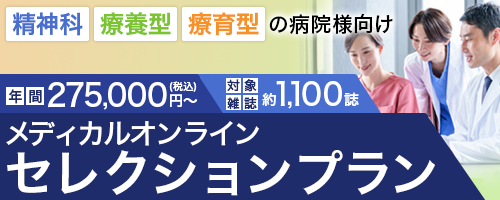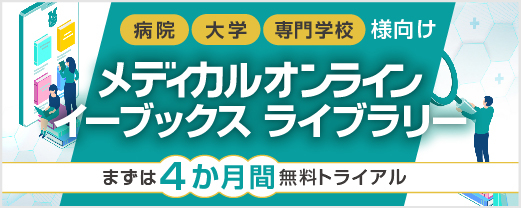アブストラクト
Japanese
| Title | 手術を受ける子どもの不安に対する保護者同伴入室の効果 |
|---|---|
| Subtitle | 原著 |
| Authors | 田中夏美1, 銭谷昌弘2, 植木隆介3, 中本志郎4, 岡本拓磨3, 大植孝治2 |
| Authors (kana) | |
| Organization | 1市立吹田市民病院外科, 2兵庫医科大学病院小児外科, 3兵庫医科大学病院麻酔科・疼痛制御科, 4松本協立病院麻酔科 |
| Journal | 日本小児外科学会雑誌 |
| Volume | 57 |
| Number | 6 |
| Page | 946-951 |
| Year/Month | 2021 / 10 |
| Article | 原著 |
| Publisher | 日本小児外科学会 |
| Abstract | 「要旨」【目的】手術を受ける患児が手術室入室時に保護者と離れることで強い不安や恐怖を感じ, 興奮状態となることはしばしば経験する. 患児が啼泣や興奮した状態で麻酔導入すると, 分泌物増加や不規則な呼吸から気道トラブルの原因となり麻酔のリスクが増大する. そこで我々は麻酔導入時の患児の不安を軽減し, 安全な麻酔導入を行うために手術室への保護者同伴入室を実施している. 保護者同伴入室が患児へ及ぼす影響を検討するために, 保護者及び患児へのアンケート調査を実施した. 【方法】2017年4月から10月までに当科で同伴入室を行った患児及び保護者100例を対象とした. 手術室入室時の不安度を小児外科医が3段階で評価し, 術後1週間目の外来受診時に保護者と5歳以上の患児にアンケート調査を実施した. 【結果】平均年齢4.7歳(1か月〜15歳). 入室時に不安があった患児は37%で, このうち強い不安があった患児は18%であった. 1歳以上6歳未満の幼児群で約半数に不安があり最も多かった. 導入時のマスクを当てた時に少し泣いた患児は8%, 泣いて暴れた患児は26%で, 1歳未満の乳児群で泣く症例が多かった. 保護者の不安なしの群(n=85)で患児に不安があったのは31%, 保護者の不安ありの群(n=15)で患児に不安があったのは73%で, 保護者の不安ありの群で有意に患児の不安ありの率が高かった(P<0.05). 術後のアンケート回収率は89%で, 保護者の99%が同伴入室して良かったと回答し, 5歳以上の患児の81%が保護者同伴により安心したと回答した. 【結論】保護者同伴入室により患児の不安は軽減したが, 保護者に不安がある場合はむしろ患児の不安は増強した. |
| Practice | 臨床医学:外科系 |
| Keywords | 小児麻酔, 保護者同伴入室, 周術期不安, pediatric anesthesia, parental presence, perioperative anxiety |
English
| Title | Effect of Parental Presence on the Management of Perioperative Anxiety in Pediatric Surgery |
|---|---|
| Subtitle | Originals |
| Authors | Natsumi Tanaka1, Masahiro Zenitani2, Ryusuke Ueki3, Shiro Nakamoto4, Takuma Okamoto3, Takaharu Oue2 |
| Authors (kana) | |
| Organization | 1Department of Surgery, Suita Municipal Hospital, 2Department of Pediatric Surgery, Hyogo College of Medicine, 3Department of Anesthesiology and Pain Medicine, Hyogo College of Medicine, 4Department of Anesthesiology, Matsumoto Kyoritsu Hospital |
| Journal | Journal of the Japanese Society of Pediatric Surgeons |
| Volume | 57 |
| Number | 6 |
| Page | 946-951 |
| Year/Month | 2021 / 10 |
| Article | Original article |
| Publisher | Japanese Society of Pediatric Surgeons |
| Abstract | Purpose: Children undergoing surgery develop intense anxiety and fear when they are separated from their parents at the operating room. Preoperative anxiety has been associated with difficulty in the induction of anesthesia. In our hospital, we allow the parents to be present during the induction of anesthesia to treat preoperative anxiety in children. Parents and children were asked to complete a questionnaire to determine the effect of parental presence on preoperative anxiety. Methods: Participants were 100 consecutive pediatric patients who underwent scheduled surgery under general anesthesia from April to October in 2017 and were accompanied by their parents in the operating room during the induction of anesthesia. The children and parents' anxiety was evaluated by one pediatric surgeon. The questionnaire was administered one week after their surgery. Results: The average age was 4.7 years (1 month to 15 years). Of these children, 37% undergoing surgery developed anxiety, among which 18% developed intense anxiety upon entering the operating room. Children aged 1 - 5 years were most likely to develop anxiety; 8% of them cried and 26% cried and tried to escape from the operating room during the induction of anesthesia. Parental anxiety was associated with concomitant increase in the child's anxiety. The postoperative questionnaire collection rate was 89%, and 99% of parents answered that they were happy to enter the operating room with their children. Eighty-one percent of children over the age of five answered they were relieved to be accompanied by a guardian. Conclusions: Parental presence relieved children's anxiety, but parental anxiety had a significant effect on the child's preoperative anxiety. |
| Practice | Clinical surgery |
| Keywords | pediatric anesthesia, parental presence, perioperative anxiety |
- 全文ダウンロード: 従量制、基本料金制の方共に770円(税込) です。
参考文献
- 1) Litke J, Pikulska A, Wegner T : Management of perioperative stress in children and parents. Part I-the preoperative period. Anaesthesiol Intensive Ther, 44 : 165-169, 2012.
- 2) Kain ZN, Caldwell-Andrews AA, Maranets I, et al : Preoperative anxiety and emergence delirium and postoperative maladaptive behaviors. Anesth Analg, 99 : 1648-1654, 2004.
- 3) Fortier MA, Martin SR, Chorney JM, et al : Preoperative anxiety in adolescents undergoing surgery : A pilot study. Paediatr Anaesth, 21 : 969-973, 2011.
- 4) Fortier MA, Kain ZN : Treating perioperative anxiety and pain in children : A tailored and innovative approach. Paediatr Anaesth, 25 : 27-35, 2015.
- 5) Sadhasivam S, Cohen LL, Szabova A, et al : Real-time assessment of perioperative behaviors and prediction of perioperative outcomes. Anesth Analg, 108 : 822-826, 2009.
残りの7件を表示する
- 6) Kain ZN, Mayes LC, O'Connor TZ, et al : Preoperative anxiety in children. Predictors and outcomes. Arch Pediatr Adolesc Med, 150 : 1238-1245, 1996.
- 7) Fortier MA, Del Rosario AM, Martin SR, et al : Perioperative anxiety in children. Paediatr Anaesth, 20 : 318-322, 2010.
- 8) Kim H, Jung SM, Yu H, et al : Video distraction and parental presence for the management of preoperative anxiety and postoperative behavioral disturbance in children : A randomized controlled trial. Anesth Analg, 121 : 778-784, 2015.
- 9) 松藤 凡, 片山正夫 : 親付き添い麻酔導入(parent presence during induction of anesthesia)による母子分離不安の軽減. 日手術医会誌, 24 : 222-224, 2003.
- 10) 荻原 準 : 術前の子どもと家族の不安の緩和と母子同伴入室. 手術看エキスパート, 11 : 19-23, 2018.
- 11) Lee J, Lee J, Lim H, et al : Cartoon distraction alleviates anxiety in children during induction of anesthesia. Anesth Analg, 115 : 1168-1173, 2012.
- 12) van der Heijden MJ, Oliai Araghi S, van Dijk M, et al : The effects of perioperative music interventions in pediatric surgery : A systematic review and meta-analysis of randomized controlled trials. PLoS One, 10 : e0133608, 2015.



